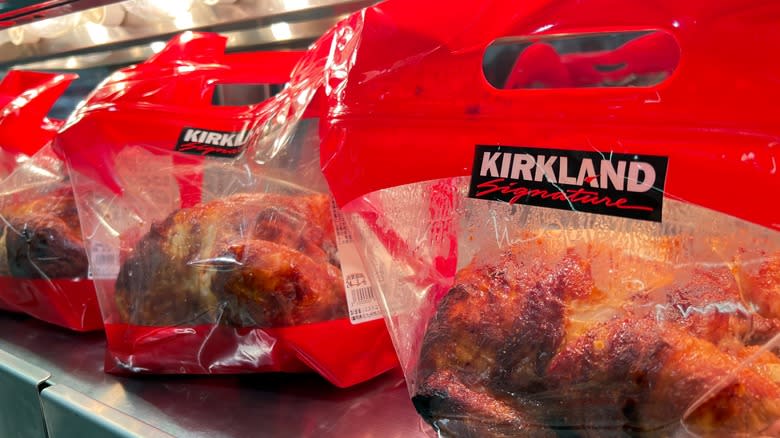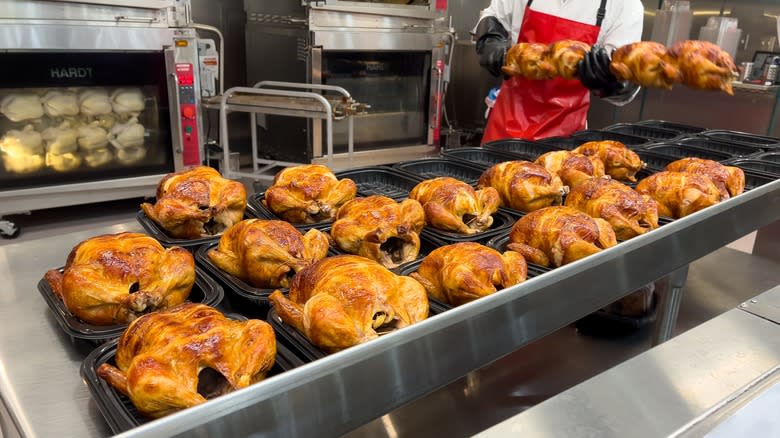The Reason Costco's Rotisserie Chicken Is So Good Simply Comes Down To Salt

The Costco rotisserie chicken is among the most coveted prepared foods at the grocery chain. A rotisserie chicken not only provides delicious meat, it also gives you chicken bones that you can turn into a hearty stock. Coming in at a surprisingly affordable $4.99, this Costco staple is easy to enjoy over and over again. In addition to being reasonably priced, the chicken is also delicious. Plus, rotisserie chicken is one of those recipes that's really difficult to get just right if you make it at home. If you've ever had a Costco rotisserie chicken you know just how juicy, salty, and savory this bird is. There's actually a reason behind this. To get its signature, addictive flavor, Costco injects its chickens with a salt solution.
Similar to marinating or brining, this salt solution infuses the chicken with a salty taste in every bite, inside and out. When the solution is injected into the meat, it penetrates further into the chicken than a normal brine, giving you a deeper, more consistent flavor. This also preserves the moisture of the chicken and prevents it from drying out as it is spit-roasted in the oven.
Read more: 14 Popular Chain Grocery Stores For Meat, Ranked Worst To Best
The Salt Solution Has An Unexpected Downside For Some

A post on the r/Costco subreddit inquired if anyone was experiencing a chemical or soapy taste from the rotisserie chicken after a change in recipe. The thread, which amassed over 200 comments, had a wide array of responses. The answer behind why some customers experience this soapy taste might stem from the salt solution. The solution has quite a list of ingredients, one of which is sodium phosphate, which may be the culprit as to why some people have this reaction.
Before you swear off buying a Costco rotisserie chicken ever again, just know that they are still perfectly safe to eat. Phosphate is a common preservative used to keep the meat from drying out. This additive is FDA-approved and should typically be invisible to the tastebuds. However, it sticks out in a bad way to some people who may be phosphate-sensitive, and some chickens might have more phosphate packed within them than others. A good way to think about it is like the cilantro gene. Some people taste soap when they eat cilantro thanks to genetics; people who get the off-putting flavor from phosphate are in the same boat.
Read the original article on Tasting Table